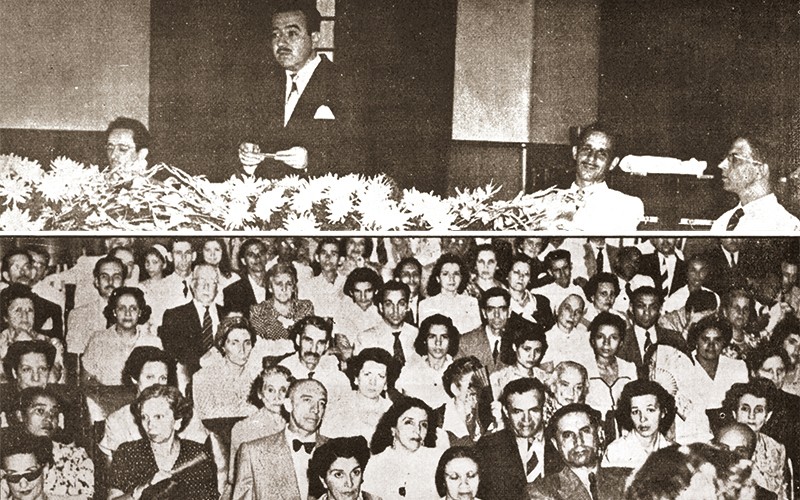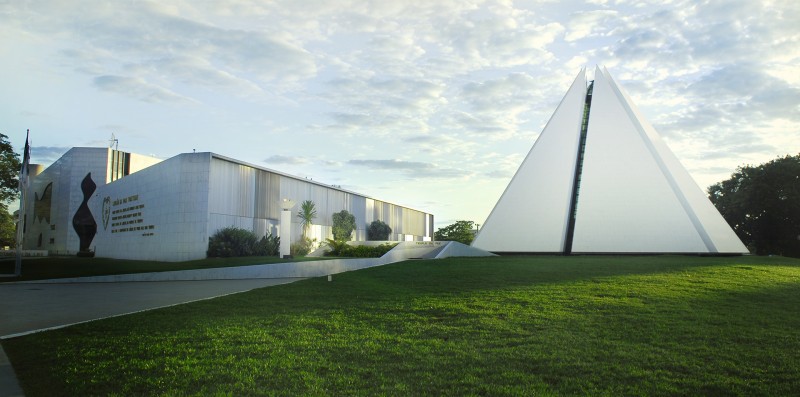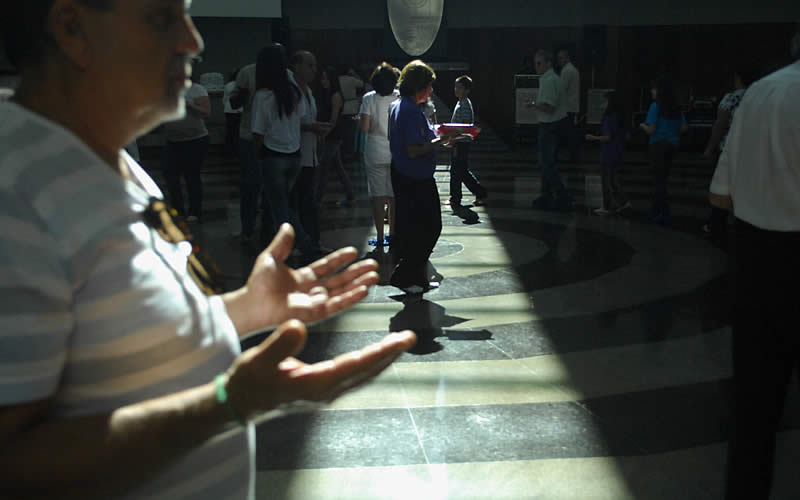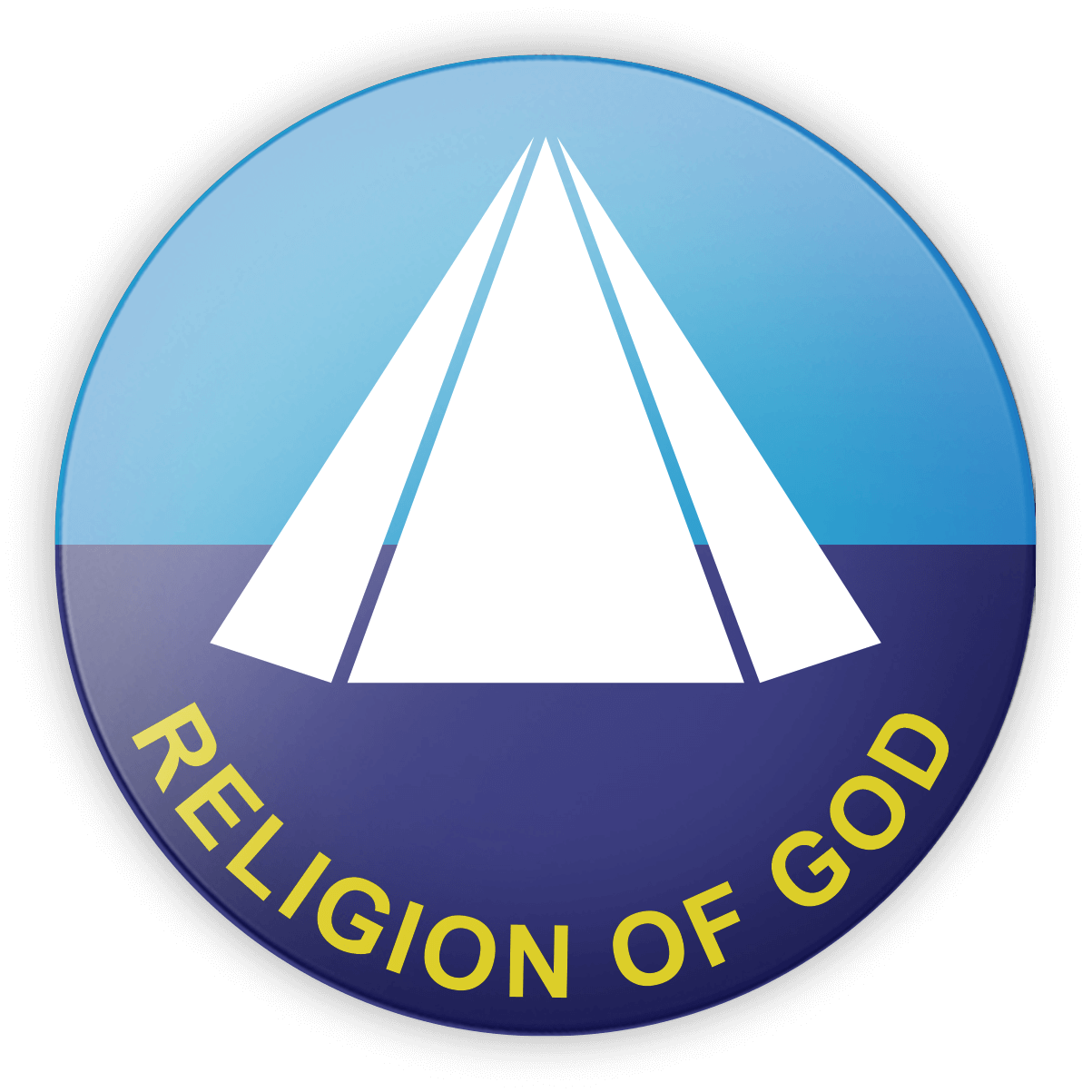Religion of Universal Love at the Forefront of Ecumenism
Religion is one of the oldest forms of social interaction and knowledge production ever known. Even before the rise of religious traditions, with the institutionalization of rituals, liturgies, and doctrines, it is believed that human beings were already expressing their religious feelings in groups, tribes, and clans thousands of years ago.

Today, scholars recognize that the religious element contributed significantly to human evolution, providing better survival conditions for Homo sapiens sapiens, who developed this aspect in their primitive groups. On this issue, Professor Silas Guerriero, anthropologist and coordinator of the Masters and Doctoral courses in the Science of Religion at the Pontifical Catholic University of São Paulo (PUC-SP), expressed himself in an interview to the Super Good Will Radio Network on February 27, 2011:
“Human groups that had this organization skill based on a belief in something superior had an advantage over others. This explains why Religion is so present even to this day, I mean, it’s something that’s very deep-rooted in us. (...) Thinking religiously was an extraordinary gain for them. It was something that gave those people a chance of survival.”
In contrast to the predominant role in the lives of people, religious traditions sometimes served as an instrument of manipulation in various political and economic disputes throughout History, because they exercised an influence on a sacred feeling individuals have, which is their most intimate and profound belief — their Faith.
For that reason, various religious practices were sometimes used as a pretext for war, while the real backdrop for such episodes was the excessive ambition of individuals or groups for power, which in turn makes people so blind that they no longer recognize the brotherhood that exists in their fellow beings.
Largely because of these occurrences, Religion was wrongly seen as a promoter of quarrels or of public manipulation, to the point of being classified by Karl Marx (1818-1883) as “the opium of the people” and by Sigmund Freud (1856-1939) as “psychic infantilism”.
Given these perspectives, how can we understand the importance of Religion in human life? In order to reflect on this, the thinking of José de Paiva Netto, President-Preacher of the Religion of God, of the Christ, and of the Holy Spirit, is enlightening. In his book Dialectic of Good Will – Reflections and Thoughts (51st edition, 1987, page 212), he writes:
“Religion is to make human beings better, by integrating them with their Creator, through the practice of Brotherhood and Justice among His creatures.”
The sense of religiosity
According to this approach, Religion certainly does not constitute a torpid and primitive element which inebriates multitudes into bloody conflicts, persecution, radicalism, apathy, or accommodation. It is quite the contrary. When questioned by a reader about this, Paiva Netto published the following words in the Folha de S.Paulo newspaper, on August 24, 1986, Main Section, page 5:
“(…) I fail to see Religion as an arena where many beliefs meet to settle their points of view, in their struggle to defend their principles or God, who is Love to begin with and who cannot approve manifestations of hate in His Holy name, neither does He require anyone’s raging in defense on His behalf.
Alziro Zarur (1914-1979) used to say that “the greatest criminal in the world is he who preaches hate in the name of God”.
“I understand Religion as Solidarity, a Respect for Life, an Enlightenment of the Spirit that we all are. I can only understand it as something dynamic, alive, pragmatic, as something altruistically fulfilling and that opens up paths of light in one’s soul. For this reason, it must stand on the forefront of ethics. I would be unable to understand Religion if it were not working in a sensible manner to transform the unhappy reality that still persecutes all people. These people are even more in need of God who is the antidote for the moral and spiritual maladies and, in consequence, for the social problems, which include the degenerating immobilism, sectarianism and intolerance that blind the Souls of crowds of people. (…) And, one cannot ever leave out atheists from any measures that can benefit the world”.
To deeply experience Ecumenism2 is one of the greatest proposals that the Religion of Universal Love brings to the world since its origin, so that the true meaning of Religion is no longer misinterpreted. Ecumenism employed in the original sense of the word— from the Greek oikoumenikós, meaning "of worldwide scope or applicability; universal”.
Therefore, it embraces all beliefs, philosophies, and areas of spiritual and human knowledge. Above all, it preaches the practice of Love, goodness, respect, solidarity, etc., by means of the “manifestation of that which is born with the individuals, even when they are atheists: the sense of religiosity, which is expressed in so many different ways”3 (the italics and boldface are ours), as the creator of The Jesus, the Ecumenical Christ, the Divine Statesman Academy states.

On January 7, 1950, in the Brazilian Press Association (ABI) in Rio de Janeiro, Zarur presided the Crusade of Brotherly Religions.
Let us look at the banner of Ecumenism on the path of the Religion of the New Commandment. On January 7, 1950—six days after founding the Legion of Good Will, which is the first evolutionary phase of the Religion of the Third Millennium—Alziro Zarur, the late radio broadcaster, journalist, and poet from Rio de Janeiro, launched the Crusade of Brotherly Religions, in which representatives from various religious traditions and fields of human knowledge could harmoniously discourse on their visions of this particular subject.
This preceded what would eventually be called inter-religious dialogue and turned into reality the precepts defended by Zarur in his youth in the 1920s. The event took place in the boardroom of the Brazilian Press Association (ABI) and was the result of preparatory meetings held in October, November, and December of 1949.
On the occasion, Salustiano César, a Protestant Minister; Teles da Cruz, a Catholic; Murilo Botelho, an Esoteric; Leopoldo Machado, a Spiritist; Eugênio Figueiredo, a Freethinker; Samuel Linderman, a Jew; and Ascânio de Farias, a Positivist addressed those present.
The initiative featured prominently in the O Globo newspaper editorials of January 13 and 26, 1950, and was recognized by the Vatican in the 1960s with the Medal of Pope Paul VI, "for services provided to the cause of Ecumenism", an award that was presented by Apostolic Nuncio Dom Sebastião Baggio.
Visit the TGWl, one of the Seven Wonders of Brasília
From this Ideal, countless actions have been developed and continue being carried out in favor of Fraternity without borders. An important example of this was the construction of the Temple of Good Will (TGW), inaugurated by Paiva Netto on October 21, 1989, in Brasília, Brazil.
The monument, a Seven- Sided Pyramid, welcomes all those who seek an encounter with the sacred, with the Creator, or with the noblest ideals, without restriction regarding social class, gender, race, or spiritual and/or philosophical belief. It is a milestone in the history of Ecumenism worldwide. Due to what the TGW represents in terms of promoting dialogue and Peace, October 21 was declared Ecumenism Day in many Brazilian states.

Five years later, on December 25, 1994, when celebrating the Permanent Christmas of Jesus, the director of the Institutions of Good Will (IBVs) inaugurated next to the Temple of Peace the World Parliament of Ecumenical Fraternity (the LBV’s ParlaMundi), a venue for important events, forums, and international conferences, such as the Ufology World Forum (1997), the LBV’s Spirit and Science World Forum (from 2000 on), and so many others that are held under the guidelines established by its builder:
"It [the ParlaMundi] proposes the universal reconciliation of all spiritual and human knowledge in a powerful force in the service of the people. Discord, radicalism, hostilities of all types must remain distant from religious, philosophical, political, scientific, economic, artistic, sporting, and so on debates and propositions, because human beings are born on Earth to live in society, a Solidary, Altruistic, and Ecumenical Society.”
The Religion of God, the Ecumenical Religion of Brazil and the world, is a member of the Committee of Religious Diversity and Human Rights (CDRDH), of the Special Secretariat for Human Rights of the Presidency of the Republic. It has been a partner of the latter since 2004, when it helped produce the Religious Diversity Pamphlet and the Human Rights and Religious Diversity video.
With this work, we hope that religious freedom, which is guaranteed in the 1988 Federal Constitution and in the Universal Declaration of Human Rights, will be truly respected and lived by everyone and that an end will be put to the religious intolerance that unfortunately still besets our country and the world.
Just as Religion was essential to the survival of primitive peoples, Ecumenism—in all its ample meaning—takes on a similar role in recognizing multiplicity and constructing social harmony. This is a factor that goes beyond the fundamental dialogue in the field of religion and is indispensable to Politics, Science, Philosophy, Economics, Culture, Art, Sports, in fact, to all spheres of life and to all creatures.

“Ecumenism is education open to Peace”
It is also fundamental for promoting “unity in diversity in order to overcome adversity”, because “Ecumenism is education open to Peace”, as Paiva Netto defends. In his message addressed to the Millennium World Peace Summit, organized by the United Nations in August 2000 and held in its headquarters in New York4, he encouraged participants from all member states to reflect upon their own responsibilities towards people, as the following extract from his message shows:
"Inviting all people to enter the Sublime School of Fraternal Love without delay in order to live it flagrantly is, in short, the task undertaken by the founders of beliefs. Carrying it out in harmony is to finally walk down the path that leads to Peace.
"Any final document that is signed in this International Meeting would be an enticement thrown in the face of the world if we do not leave here convinced that we are legitimately Humanity, ‘a poem of compassion’, as Buddha (556-486 B.C.) wanted us to be.
"At the end of this Millennium World Peace Summit, hosted by the United Nations (UN), let us cross its portals as brothers and sisters once and for all. Brothers and Sisters in here; Brothers and Sisters out there; Brothers and Sisters thousands of kilometers away. Only in this way will we be able to achieve what we agreed in this event satisfactorily."
After all, wasn’t this what the Rabbi of Galilee asked of us two thousand years ago? The Ecumenical Jesus, anti-sectarian, free of hate and fanaticism—as proclaimed by the Religion of God—, whose blessed influence goes beyond religious traditions, did not even fear “death” so integrated was he into the sublime meaning of His New Commandment:
“Love one another, as I have loved you. Only by this shall all of you be recognized as my disciples” (Gospel according to John, 13:34 and 35).
This is what sustains the concept and the practice of Ecumenism in the Religion of the Third Millennium. This is the driving force that motivates people to apply this divinely human sense in everything they accomplish in life.
The Beloved Master also encouraged us not to cultivate Faith in a blind and intolerant way, when He said: “Do not believe me unless I do the works of my Father. But if I do them, even though you do not believe me, believe the works, that you may know and understand that the Father is in me, and I in the Father.” (The Gospel according to John, 10:37 and 38).
Now, from the deeds that the Ecumenical Christ performed out of His Love for Mankind, there are countless reasons for applying the universal teachings of this Being, who did nothing other than spread Light, Goodness, and Harmony among people, without distinction.
Send your doubts and comments on this and other topics to the Religion of God, of the Christ, and of the Holy Spirit. Let the Ecumenical Spirituality be part of your life! If this content does you good, share it! It may touch the heart of many other people too.
____________
Josué Bertolin — Executive Secretary of the Jesus, the Ecumenical Christ, the Divine Statesman Academy; and host of the Conexão Jesus [Jesus Connection] program, broadcast by the Super Good Will Communications Network (radio, TV, and the Internet).
1 Religion of God, of the Christ, and of the Holy Spirit — also called the Religion of the Third Millennium, and the Religion of Universal Love. This is the Ecumenical Religion of Brazil and the world.
2 Learn about The Four Pillars of Ecumenism in Paiva Netto’s book Reflexões da Alma [Reflections of the Soul] (135th edition, São Paulo: Elevação, 2009, pages 162-164).
3 This quote by Paiva Netto is from an interview given to the veteran Italian journalist living in Brazil Paulo Parisi Rappoccio, on October 10, 1981. It can be considered that, either consciously or unconsciously, materialistic theories cultivated this sentiment described by the author in the form of ideology and/or utopia, motivating itsfollowers to cultivate a system of beliefs and values based on a higher aspiration towards a better future, established on their conceptions.
4 More than one thousand religious leaders from various countries came together to pledge a commitment, by means of an important document produced at the Millennium World Peace Summit, to work jointly towards a solution to the problems of intolerance in the world. The message "The dynamism of Peace", by Paiva Netto, published in four languages (Portuguese, English, Spanish, and French) had such a significant /impact on those present that it was chosen to be read at the conclusion of the event. Due to the fact that the LBV has been working with the UN since 1994—when it became member of the Department of Public Information (DPI), obtaining general consultative status at the United Nations Economic and Social Council in 1999—and because the ecumenical and fraternal tradition of its words and services on behalf of human understanding were recognized, it received an invitation letter from the organizing committee addressed to the President of the Organization to indicate names and coordinate the group of Brazilian religious people who were at that important meeting.



